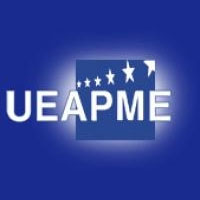Mixed feelings from SMEs over patent proposal
UEAPME, the European small and medium sized enterprise (SME) employers' organisation, has praised the European Commission for its proposal to improve the current EU patent litigation system, but expressed regret at the lack of progress made on the Community patent. In a statement issued on 4 April, the organisation said it welcomed the integrated approach on the EU litigation system, which the Commission put forward in its communication 'Enhancing the patent system'. The approach brings together the best of two previously-tabled suggestions: a centralised judicial system, strongly based on the draft European Patent Litigation Agreement (EPLA), combined with a limited number chambers of first instance. The system, which would be firmly integrated into Community jurisdiction, would have the competence to litigate on European patents and future Community patents. 'The EU-wide level and the first instance chambers would respectively ensure a homogenous interpretation and proximity, and thus increase legal certainty and reduce litigation-related expenses,' commented Luc Hendrickx, UEAPME Director of Enterprise Policy and External Relations. But the Commission still has some way to go to make the proposal suitable to the needs of SMEs, argues UEAPME. It points to a need to urgently introduce reduced patent fees for SMEs, since the high costs of patenting are one of the biggest deterrents to SMEs obtaining patents for their inventions and products. Another stumbling block is the lack of a patent litigation insurance system, which UEAPME says is an 'indispensable part of an efficient SME patent policy'. In 2001 and again in 2006, the Commission requested a study on the possibility of introducing such a system. These studies were followed by a public consultation. Although the stakeholder responses are still being analysed, the Commission says that it can already conclude that the overall reaction to a mandatory patent litigation insurance system is sceptical. On the Community patent, UEAPME said it 'deplored' the fact that the issue of the language regime remained unresolved. Under the Community patent proposal as it stood in 2003, patent applications would be submitted in one of three languages (German, English or French), while successful claims would have to be filed in all official Community languages at the applicant's cost. Many stakeholders however have objected to this regime, since it would involve very high translation costs, particularly for SMEs. UEAPME argues that the number of languages in which a patent can be filed should be reduced, ideally to English only, and calls upon the Commission to find a solution. 'The unresolved Community patent leaves European SMEs without one of the essential instruments to innovation,' noted Mr Hendrickx. Meanwhile, BUSINESSEUROPE, a grouping of EU industries, said it hoped that the Commission's communication would move the patent debate forward. 'I hope that this initiative will help to bring us forward. Companies have voiced what they need and it is now time for action,' said Ernest-Antoine Seillière, President of BUSINESSEUROPE. 'Member States cannot claim that R&D [research and development] and innovation are key for economic growth and at the same time block progress on the patent agenda.'



